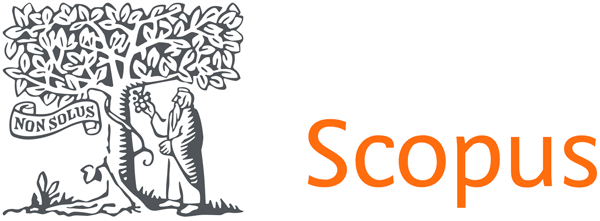THE ROLE OF SERVICE QUALITY AND TRUST ON CONSUMER LOYALTY AT PT. HENSON ALFA GROS PEKANBARU
DOI:
https://doi.org/10.35145/jabt.v1i1.23Keywords:
Service Quality, Trust, Customer LoyaltyAbstract
Consumer loyalty is very important for a company, because the rewards of loyalty are long-term and cumulative, which means that the longer the consumer loyalty the greater the profit that can be obtained by the company from a consumer. The purpose of this study was to determine the effect of Service Quality and Trust on Consumer Loyalty at PT. Henson Alfa Gros Pekanbaru. The population in this study were all consumers of PT. Henson Alfa Gros is on Pekanbaru and has made transactions more than 2 times. The number of respondents in this study was 100 businesses. The data collection technique that was used is the questionnaire method. Questionnaire is a way of collecting data through a list of questions that the author has prepared aimed at respondents who will be sampled, while for data analysis techniques using multiple linear regression analysis, F-test, t-test and coefficient of determination. The results of the study show that Trust has an effect on Consumer Loyalty and Service Quality has no effect on Consumer Loyalty at PT. Henson Alfa Gros Pekanbaru.
References
Akbar, Muhammad Muzahiddan Noorjahan Parvez. 2009. “Impact of sevice, quality, trustand customer satisfaction on customer loyalty. ABAC Vol. 29, No. 1, (January-April), pp.24-38
Barnes, James G., (2003). Secret Of Customer RelationShip Management, ANDI, Yogyakarta
Cristopher, H., Lauren Wright. 2005. Manajemen Pemasaran Jasa. Jakarta: PT. Macan Jaya Cemerlang.
Corbit, B. J., Thanasankit, T., dan Yi, H., 2003. Trust and E-Commerce Enabler, Journal of Workplace Learning, 14(4): 148-155
Ghozali, imam. 2005. “aplikasi analisis multivariate dengan program SPSS”. Semarang: badan penerbit universitas diponegoro.
Ghozali, Imam. 2009. Aplikasi Analisis Multivariate dengan Program SPSS. Semarang: UNDIP.
Griffin, Jill. 2002. Customer Loyalty terjemahan Dwi Kartini Yahya. Jakarta: Erlanga
Hasan Ali. 2013. Marketing. Cetakan pertama. Media Pressdindo Yogyakarta.
Hygid Starini, 2013.“Pengaruh Kualitas Pelayanan terhadap Loyalitas Konsumen dengan Kepuasan sebagai Variabel Mediasi”. http://eprints.uny.ac.id
Kotler, 2009. Manajemen Pemasaran (Edisi Milenium). Jakarta: PT Prehanlindo.
Mayer et al. 2010. Marketing Research an Applied Orientation. Prentice Hall. New Jersey.
Morgan, R.M. and Hunt, S.D. (1994), “The commitment-trust theory of relationship marketing”, Journal of Marketing, Vol. 58 No. 3, pp. 20-38
Pasuraman, 2005. Hubungan Antar Variabel Tangibles, Reliability, Resvonsiveness, Assurance, dan Empathy.Pustaka RekaCipta: Bandung.
Ramadania. 2002. “Kepercayaan dan komitmen sebagai perantara kunci relationship marketing dalam membangun loyalitas survey pada nasabah Bank Muamalat Indonesia Surabaya”. Jurnal Riset Ekonomi dan Manajemen, Vol. 2, No. 1
Santoso, septiadi. 2013. “Pengaruh Kualitas Pelayanan Terhadap Loyalitas Pelanggan Laboratorium Klinik Populer Surabaya”. JurnalIlmu Dan Riset Manajement, Vol. 2, No.6, 2013, Surabaya.
Soegoto.2013. Persepsi Nilai dan Kepercayaan terhadap Kepuasan dan Dampaknya Terhadap Loyalitas Konsumen. Jurnal EMBA, Vol.1 No.3, Hal. 1271-1283
Sugiyono. 2009. Metode Penelitian Pendidikan Pendekatan Kuantitatif, Kualitatif, dan R&D. Bandung : Alfabeta
Sugiyono. 2010. Metode Penelitian Bisnis. Bandung: Alfabeta
Sugiyono. 2015. Metode Penelitian Kombinasi (Mix Methods). Bandung: Alfabeta.
Tjiptono, Fandy. 2008. Service Management mewujudkan layanan prima. Bandung : CV Alfabeta.
Tjiptono, Fandy, 2000. Manajemen Jasa. Edisi Kedua. Andy offset. Yogyakarta
P://eprints.undip.ac.id/23351/ (diakses tanggal 18 Juni 2019)






